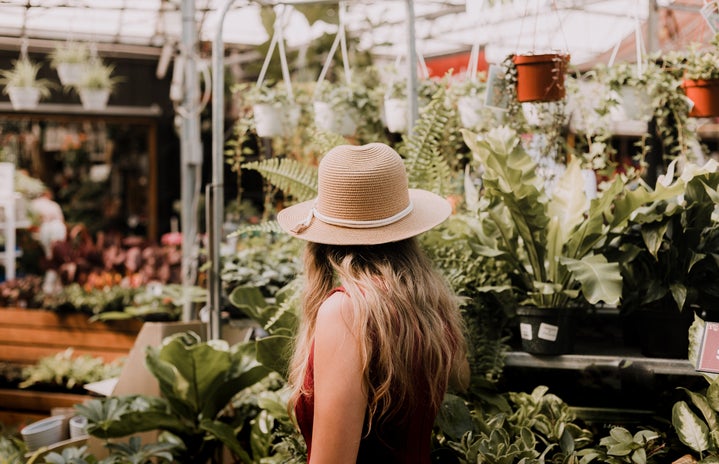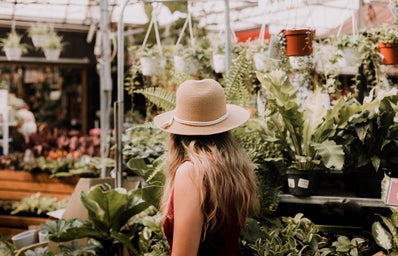In today’s age, the debate over climate change is a heated discussion. Experts have produced data and evidence explaining that humans have impacted the environment in more ways than one. 2016 was one of the warmest years on record with eight of the 12 calendar months set records for being the warmest in history, according to NASA.
The correlation between plastic usage and climate change is a call to action for every person on this planet. Plastic usage is actually expected to increase in the next few years, even though it seems as if millennials on Twitter are all on the same page— especially on the straw debate.
So, why is there so much plastic in our water? In our soil?
Plastic is fairly cheap and easy to make through fossil fuels, which harm our air and our oceans, and contribute to climate change; and although we all know the downsides of it, the substance still turns up everywhere. Plastic is a fast-food chain’s best friend and often gives people the feeling of safety when they see it wrapped tightly around cuts of meat.
For some, it’s hard to imagine what can be done to save the environment with just one person. How can you make a difference? While it may seem like you’re not doing much, just by following these nine rules can minimize our carbon footprint.
1. Stop using plastic straws
This is a simple one that I’m sure you have all heard about! Whether you’re at Starbucks, a restaurant or chilling in your apartment with a fruity, summery drink in hand, forget the straw! They’re unnecessary when you actually sit down and think about it and can produce a lot of waste worldwide.
2. Use a reusable produce/shopping bag
When you’re in the checkout line at the grocery store, you’ll normally spot these little guys! Most of the time, they’re made from non-harmful materials and resemble a tote bag. If these ones aren’t your style, you can always check out Amazon or Etsy shops for options. At the end of the day, you’re cutting down your plastic intake and saving yourself from shoving a bunch of plastic bags under your sink.
3. Buy produce from bulk bins and use a reusable container
This can be a little tricky on a college student’s budget, but it’s completely manageable if you know what you want beforehand. If your local grocery store offers it, take a mason jar with you on your next trip and refill it with rice or pasta. If your store doesn’t have bulk bins you can pick from, even just using a reusable container for your produce, such as apples and fresh lettuce, can be a huge help to the environment.
4. Use a reusable travel mug/water bottle
Invest in a reusable water bottle (I have a Brita filter bottle that I love) and a travel mug. Even if you’re an avid Dunkin’ drinker, they’re more than happy to fill up your travel mug with your favorite brew instead of picking out a plastic cup. Just ask!
5. Make your own cleaning products
I’ve seen plenty of blog posts about how to make your own non-toxic cleaning products made from ingredients you should already have in your kitchen. By doing this, not only do you know exactly what’s in these cleaners, but you also are cutting back on your plastic intake. Think about it: when you go to the store and buy liquid laundry detergent, how much plastic are you purchasing? What about the pods?
Even if making your own cleaning products isn’t doable for your lifestyle, consider buying powder laundry detergent that comes in a cardboard box. Cardboard is a lot easier to recycle than plastic.
6. Use a razor with replaceable blades
Instead of buying a package of 15+ razors, consider buying a decent one in which the blades can be replaced when they’re dull.
7. Shop more at stores that use paper
Finally, an excuse to actually do some more shopping! If you’re an avid shopper like myself, you probably can think of a few stores that use paper bags instead of plastic ones. Support these brands.
8. Buy cardboard instead of plastic when buying in bulk
When you step into the freezer aisle, you’ll see packages upon packages of frozen food, surrounded by a layer of plastic. If possible, buy these products when they’re contained inside of a box.
9. Recycle!
It’s a given, but can you imagine the positive impact we would have if everyone recycled?!
If everyone in America alone practiced a few of these ways, the Great Pacific Garbage Patch would be nearly eliminated, animals’ lives would no longer be in severe danger from plastic soda rings and the air we breathe and the earth we walk in would be cleaner. Encouraging yourself and your friends and family to reduce their plastic intake would not only give our planet a healthier start but also give ourselves one.


